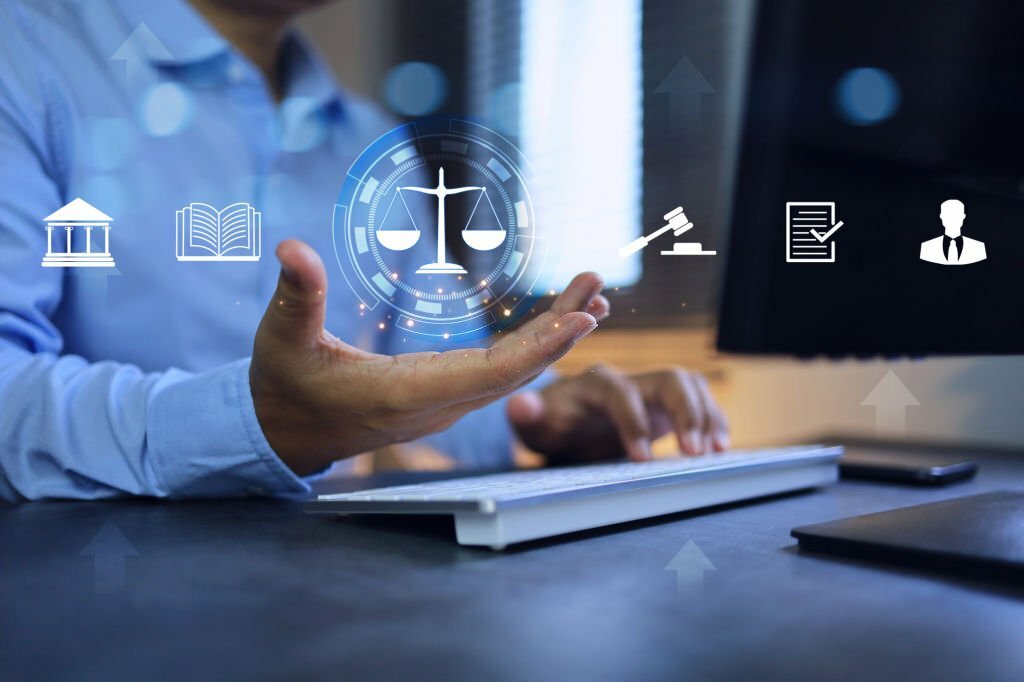In the ever-evolving landscape of the legal industry, the integration of technology has become a pivotal factor in streamlining operations, improving efficiency, and ultimately delivering better services to clients.
Technological partnerships, particularly those involving robust IT support, have emerged as a key driving force behind the transformation of legal services. This article explores the various dimensions of technological partnerships in the legal sector, highlighting their impact on different facets of legal practice.
The Evolution of Legal Tech: A Brief Overview
Before delving into the role of technological partnerships, it’s essential to understand the evolution of legal technology. The legal industry, traditionally known for its conservative approach, has witnessed a paradigm shift with the advent of advanced technologies.
From the adoption of document management systems to the implementation of artificial intelligence (AI) and machine learning (ML) algorithms, law firms and legal professionals are embracing innovative solutions to stay competitive in a rapidly changing environment.
Rise of Legal Tech Startups
One notable trend in the evolution of legal tech is the proliferation of startups dedicated to addressing specific challenges within the legal sector. These startups leverage technology to offer solutions that enhance legal research, contract management, e-discovery, and more.
Through strategic partnerships, these startups often find support from established IT firms, creating a symbiotic relationship that benefits both parties and, ultimately, the legal clients.

The Collaborative Landscape: Legal Firms and IT Providers
The collaboration between legal firms and IT providers has become increasingly common, driven by the recognition that technology can significantly amplify the capabilities of legal professionals. Explore here how legal entities and IT providers are joining forces to create a synergistic approach to delivering legal services.
Streamlining Legal Processes with Cloud Solutions
Cloud computing has become a cornerstone in the collaborative efforts between legal firms and IT providers. By leveraging identity and access management cloud services, legal professionals gain access to secure and scalable infrastructure, facilitating seamless collaboration, document sharing, and remote access.
This not only enhances the efficiency of legal processes but also ensures data security and compliance with regulatory requirements.
Harnessing the Power of Artificial Intelligence in Legal Practice
Artificial intelligence has emerged as a transformative force in the legal industry. Legal tech startups specializing in AI applications collaborate with law firms to develop tools that automate routine tasks, such as document review, legal research, and contract analysis.
The integration of AI not only expedites these processes but also allows legal professionals to focus on higher-value tasks that require critical thinking and legal expertise.
Cybersecurity: A Paramount Concern in Legal Tech Partnerships
As legal firms increasingly rely on technology, the importance of robust cybersecurity measures cannot be overstated. IT providers specializing in cybersecurity play a crucial role in safeguarding sensitive legal information from cyber threats.
Collaborative efforts in this domain involve implementing encryption protocols, conducting regular security audits, and educating legal professionals on best practices to mitigate cyber risks.
Realizing Cost-Efficiency Through Tech Partnerships
The financial considerations in legal practice are substantial, and technological partnerships offer avenues for cost savings and enhanced resource utilization. This section explores how legal entities can achieve cost-efficiency through strategic collaborations with IT partners.

Outsourcing IT Services: A Strategic Move
Legal firms often find it cost-effective to outsource certain IT services to specialized providers. This includes tasks such as IT infrastructure management, software development, and helpdesk support.
Outsourcing allows legal professionals to focus on their core competencies while benefiting from the expertise and efficiency of IT service providers, leading to a more streamlined and cost-efficient operation.
Economies of Scale in Technology Procurement
Collaborating with IT partners enables legal entities to benefit from economies of scale when procuring technology solutions.
By leveraging the purchasing power and infrastructure of established IT providers, legal firms can access cutting-edge technologies without the burden of substantial upfront costs. This democratization of technology levels the playing field for both large and smaller legal practices.
Overcoming Challenges: The Role of IT Support in Legal Partnerships
While technological partnerships offer numerous advantages, challenges may arise during the integration and implementation phases.
Effective IT support becomes pivotal in overcoming these challenges and ensuring a smooth transition to tech-enhanced legal services. This section delves into the common challenges faced by legal firms and the critical role IT support plays in addressing them.
Integration Challenges and the Need for Seamless Transitions
Integrating new technologies into existing legal workflows can be a complex process. Resistance to change, training requirements, and compatibility issues are common hurdles that legal professionals may face.
IT support providers play a crucial role in facilitating seamless transitions by offering comprehensive training programs, troubleshooting integration issues, and providing ongoing support to ensure optimal system performance.
Data Migration and Security Concerns
The legal industry deals with vast amounts of sensitive and confidential information. During the transition to tech-enhanced services, data migration becomes a critical concern.
IT support partners with expertise in data migration strategies and robust security protocols help legal firms navigate this process securely, ensuring the integrity and confidentiality of client information.
The Future Landscape: Emerging Technologies and Legal Innovation
As technology continues to advance, the legal industry must stay ahead of the curve to remain relevant and competitive. Explore the emerging technologies that shape the future of legal services and the potential for collaboration between legal entities and IT partners.
In the digital era, legal firms thrive with strategic tech partnerships—essential for competitiveness, quality services, and navigating dynamic legal landscapes.

Blockchain Technology in Legal Practice
Blockchain technology, known for its decentralized and tamper-resistant nature, holds immense potential in revolutionizing legal processes. Smart contracts, powered by blockchain, have the potential to automate and streamline contractual agreements, reducing the need for intermediaries and enhancing transparency.
Legal tech startups focusing on blockchain applications may find strategic allies in IT providers to bring these innovations to mainstream legal practice.
The Role of Augmented Reality (AR) and Virtual Reality (VR)
The integration of augmented reality (AR) and virtual reality (VR) technologies introduces new possibilities in legal proceedings, particularly in areas such as courtroom simulations, virtual crime scene reconstructions, and immersive legal education.
Legal entities exploring the incorporation of AR and VR may seek partnerships with IT providers specializing in these technologies to ensure seamless integration and optimal user experiences.
Conclusion
The synergy between legal entities and IT partners has proven to be a driving force in the evolution of legal services. From streamlining processes and efficiency, innovation, and cybersecurity converge in legal tech partnerships, reshaping the legal landscape through collaborative efforts.
In the digital era, legal firms thrive with strategic tech partnerships—invaluable for competitiveness, quality services, and navigating dynamic legal landscapes.




